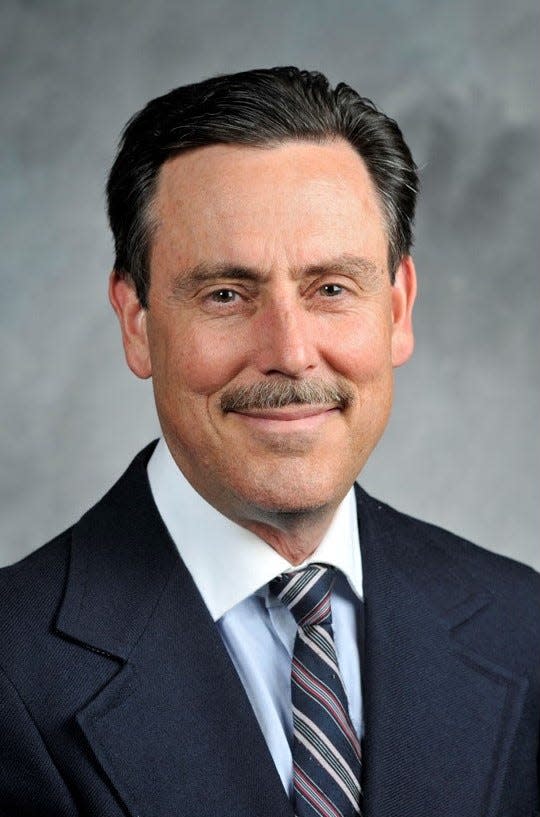Michael Dourson: Roundup - are we safe from its exposure?

- Oops!Something went wrong.Please try again later.
All of us likely have seen the advertisements on television offering legal counsel for individuals who might have had exposure to the herbicide Roundup and have certain cancers. These ads are based on a court ruling in California, which was based in part on publications that purport to show links between cancers and hormone-related effects.
Others have opined the U.S. Environmental Protection Agency (EPA) is not doing its job in protecting the US public from the dangers of glyphosate, the active ingredient of this herbicide. So natural questions for any of us to ask might be:
Are the EPA and big agricultural groups defending glyphosate because they need to maintain business as usual?
Should the public be concerned about cancer and hormone effects from Roundup?
The short answer to either question is an emphatic no. EPA and health agencies around the world have reviewed hundreds of experimental animal and human studies on glyphosate and come to a near unanimous conclusion: Roundup does not cause cancer and, when used according to directions, is safe at the occasional, tiny levels found in our food.
KID PJs: Michael Dourson: How to choose the safest children's pajamas
For example, the U.S. Department of Agriculture (USDA) released a 2016 report that found no pesticide residue levels high enough to pose any human health risks, even for infants. Specifically, the USDA tested for pesticides in 10,619 samples of food.
Pesticide residue levels were found to be at or below tolerance levels set by the EPA in all but 0.4% of the samples. Importantly, tolerances would have to be exceeded routinely for nearly a lifetime for any possible health effects in the most sensitive members of our public — a very remote possibility.
The one exception to the otherwise unanimous conclusion on the safety of Roundup by U.S. and other health organizations was that drawn by the International Agency for Research on Cancer (IARC) in France. Importantly, judgments by this group are not peer reviewed. Other items included in IARC classifications are eating red meat, exposure to emissions from high frying temperatures and working as a hair-dresser or barber.
So why is IARC’s judgment different than all other organizations?
IARC classifications are based primarily on a chemical’s “hazard” potential and do not generally consider the dose at which effect can occur. This IARC approach differs greatly from the “real world” conclusions drawn by multiple international regulatory agencies that Roundup exposure at current levels does not cause cancer in humans.
Moreover, the IARC approach ignores one of the key principles of toxicology — that all chemicals are toxic at some dose, yes, even water. So making statements of health risk without accounting for the dose causing the health effect is not good toxicology, nor good medicine.
For additional reading on the supposed risks from Roundup™ and for links to stories about its well-known benefits, especially to the farmers in our area and around the world, please see well-balanced essays at kidschemicalsafety.net and acsh.org.
Michael Dourson is a local board-certified toxicologist and director of science for the nonprofit organization Toxicology Excellence for Risk Assessment (tera.org), which studies chemical hazards for both government and industry. He also is executive director of the nonprofit Toxicology Education Foundation (toxedfoundation.org), which helps the public understand concepts in toxicology and specific information about chemicals, and serves as a scientific adviser for the American Council on Science and Health website (acsh.org). Questions from readers are welcome. Send them to yournews@mansfieldnewsjournal.com.
This article originally appeared on Mansfield News Journal: Michael Dourson: Are we safe from exposure to Roundup herbicide?
